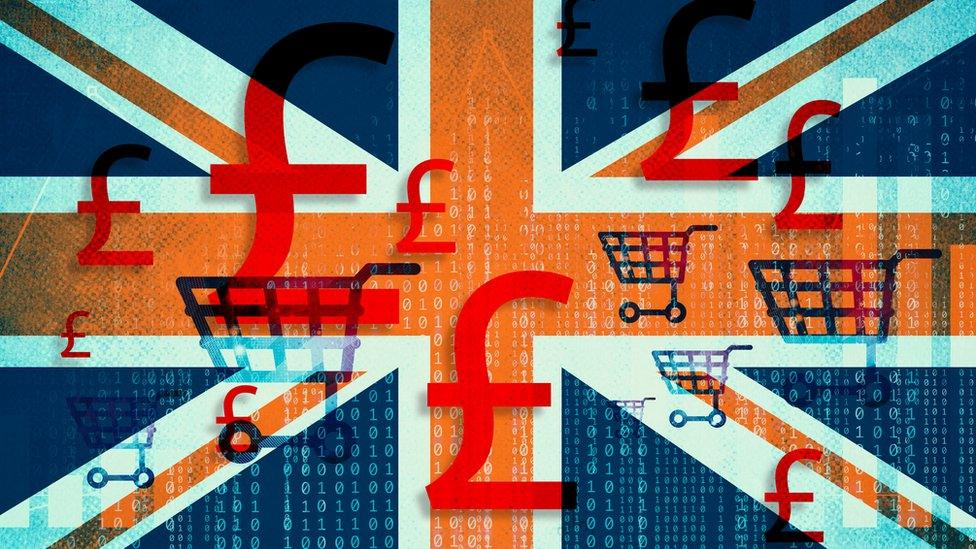Prime Minister Liz Truss and chancellor Jeremy Hunt meet to decide economic plan
- Published
- comments
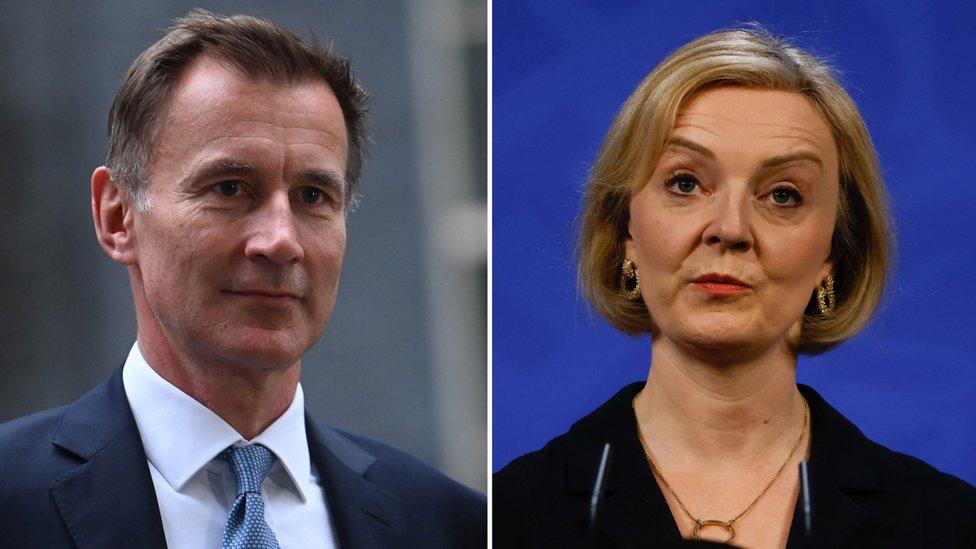
The Chancellor of the Exchequer Jeremy Hunt and Prime Minister Liz Truss are meeting to decide an economic plan for the country
Jeremy Hunt, the new chancellor of the exchequer and Prime Minister Liz Truss will meet on Sunday to decide what the government's new economic plans will be.
The chancellor is the person responsible for how the government spends the country's money.
Former Health Secretary Mr Hunt was appointed as the new chancellor after Kwasi Kwarteng was sacked.
Mr Kwarteng was only in the role for 38 days, after being appointed as part of Liz Truss' new government.
The new chancellor Jeremy Hunt has said there were "mistakes" made with the government's previous plans and his focus is on "growth" with "stability".
The changes come as the UK is experiencing a 'cost of living' crisis and many people are finding it more difficult to pay for the things they need.
Pressure on PM: What has happened? (15 October 2022)
Why was Kwasi Kwarteng sacked?
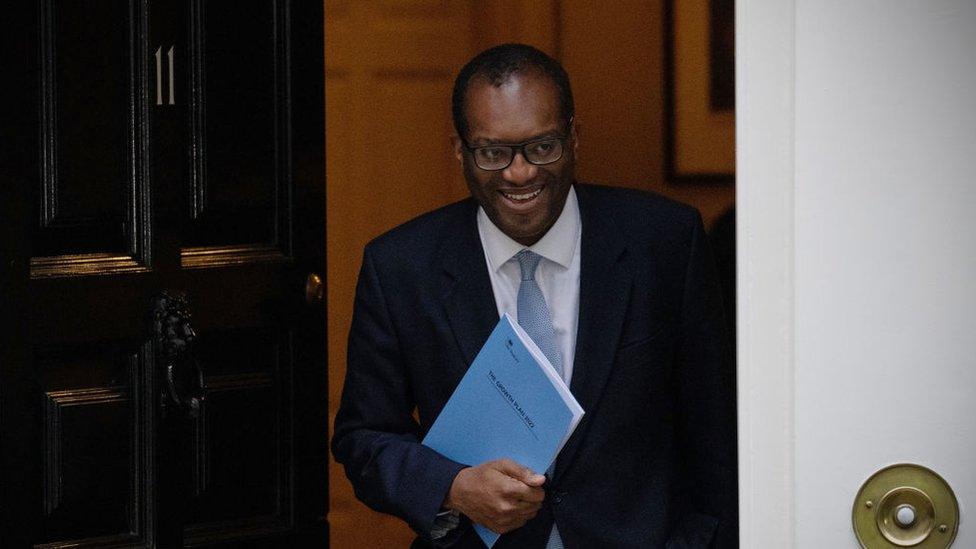
Mr Kwarteng announced his mini-budget at the end of September
Several issues arose following Mr Kwarteng's announcement of the mini-budget on the 23 September, which laid out the government's plans for spending over the next few months.
The original proposals included cutting taxes, reversing an increase on national insurance - which all adults who work in the UK pay on what they earn - and cutting income tax for the country's highest earners.
However, many people were unhappy about the proposed changes - including members of Mr Kwarteng's own party - and the news affected financial markets, causing the value of the pound to fall drastically against other currencies like the dollar.
Kwasi Kwarteng was the government's newest Chancellor of the Exchequer, taking up the role formally held by fellow Conservative MP Rishi Sunak.
Mr Kwarteng became business secretary in the government of Boris Johnson.
He backed Liz Truss in her leadership campaign to become PM, and she then made him finance minister.
He presented a mini-budget on 23 September which pledged £45bn of tax cuts, funded by borrowing, which caused problems in the financial markets.
He is now one of Britain's shortest-serving chancellors, with just 38 days in the role.
The chancellor and the prime minister faced lots of pressure about their financial plans, both from opposition parties and ministers in their own Conservative party.
The backlash forced the government to change some of Mr Kwarteng's plans that he announced in his mini-budget. This is what's known as a U-turn.
On Friday, Mr Kwarteng met Ms Truss for talks in Downing Street, were he was told he would be losing his job.
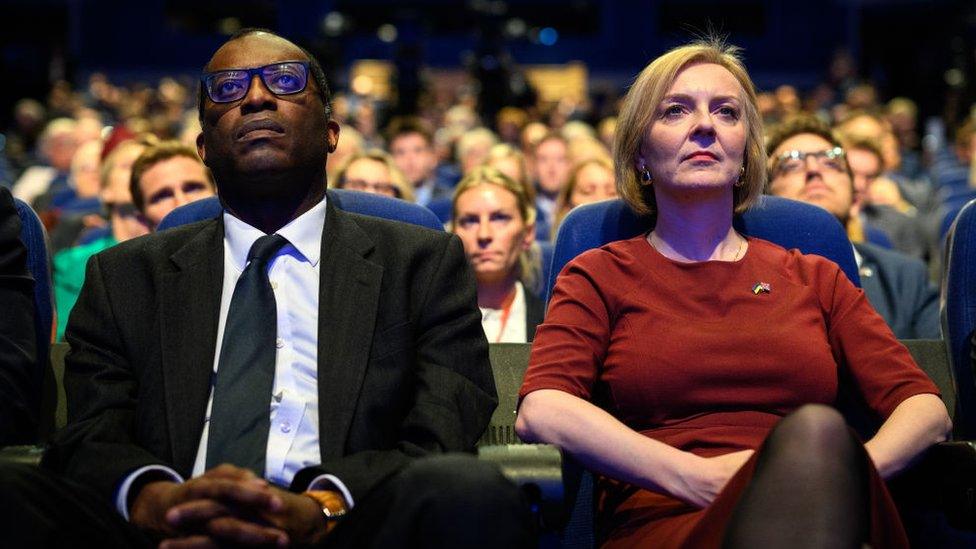
Mr Kwarteng was seen a close friend of Ms Truss
Following his sacking, Mr Kwarteng shared a letter he'd written to the PM on social media in which he said her vision for economic growth was "right" and he still supported it.
"For too long this country has been dogged by low growth rates and high taxation - that must change if this country is to succeed," he said.
He ended the letter by saying it had been an "honour" to serve Ms Truss as her first chancellor.
"Your success is this country's success and I wish you well," he said.
What does a chancellor do?
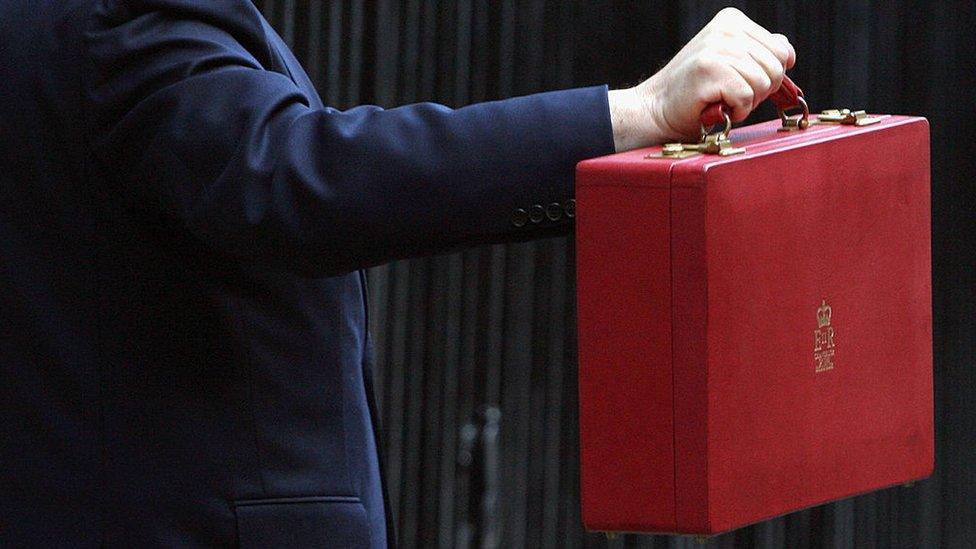
The red box is used by the chancellor to deliver the new UK Budget
The Chancellor of the Exchequer is the person responsible for the UK's money.
They make some big decisions about how the UK's finances are spent, and how money is raised through taxes and borrowing.
The chancellor oversees the work of the Treasury which looks after everything to do with the UK's money.
The chancellor announces their plans for spending in something called a budget - these are usually announced once a year, but can be more frequent.
What has Liz Truss said?
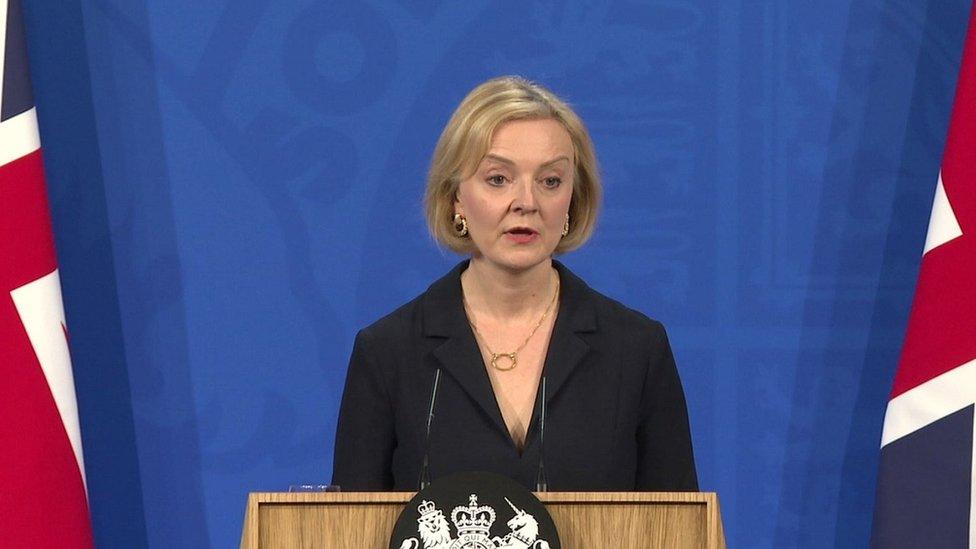
The prime minister held a press conference following Mr Karteng's sacking
Prime Minister Liz Truss held a press conference on Friday afternoon following Kwasi Kwarteng's sacking from his role as chancellor.
In it she announced further changes to the government's financial plans, saying it had been a "difficult" day.
She admitted that the reaction to "parts of our mini-budget went further and faster" than expected, and so she had to change parts of their plan.
But she insisted she would stay on as PM to see through her "mission" to get the economy growing.
"I'm absolutely determined to see through what I promised - to deliver a higher growth, more prosperous United Kingdom to see us though the storm we face," Ms Truss said.
Ms Truss also said she was "incredibly sorry" to lose Kwasi Kwarteng as chancellor but added that her newly-appointed Chancellor Jeremy Hunt "shares her vision".
What has the reaction been?
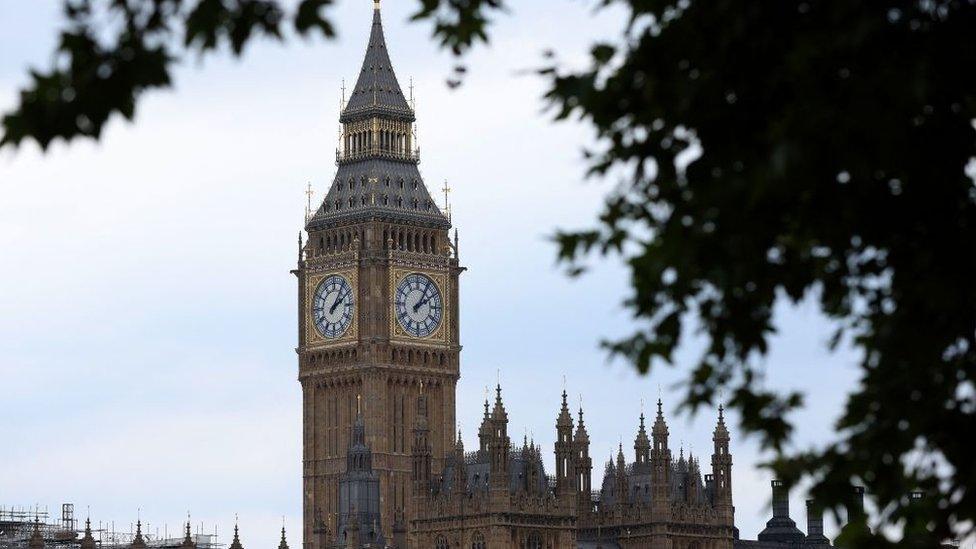
Some MPs have been calling for Liz Truss to resign as prime minister
Reaction to the prime minister's announcement has not been very good.
Ms Truss has been criticised for making such a big u-turn to the plans she had supported, so soon after they were announced.
At the press conference she faced questions from journalists about how she could continue as prime minister.
Some Conservative MPs have been calling for her to resign, with one MP telling the BBC her news conference was a "disaster".
But some members of Ms Truss's government have been messaging support for her.
Deputy Prime Minister Therese Coffey tweeted: "The PM is right to act now to ensure our country's economic stability - key for families and businesses - and reassure the markets."
Tory MP John Redwood urged his Conservative colleagues to "calm down" and give the PM "every support".
Labour leader Sir Keir Starmer and Scotland's First Minister Nicola Sturgeon have both called for a general election.
But Ms Truss has said there will not be a general election until 2024.
What happens now?
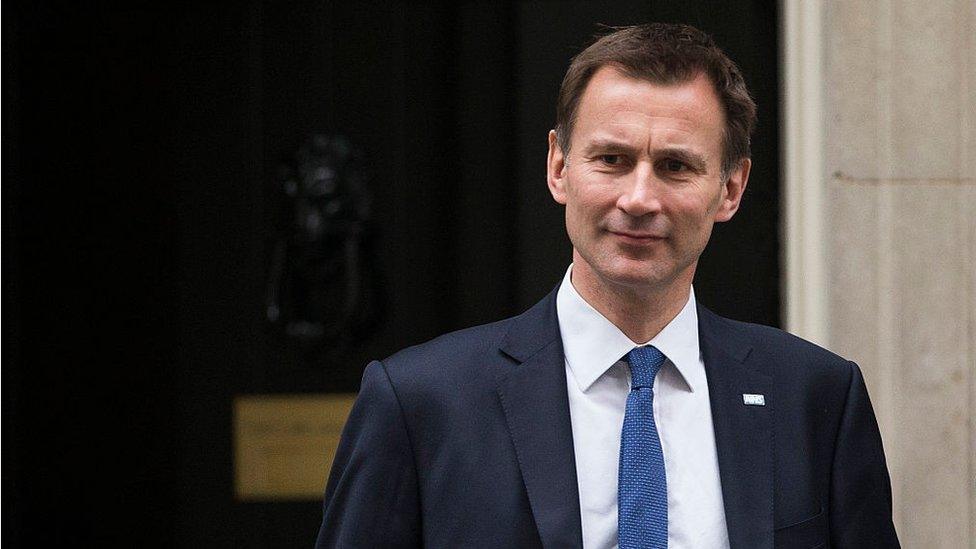
Jeremy Hunt is the new chancellor
The new chancellor Jeremy Hunt has said there will be "difficult decisions" ahead and has warned of tax rises.
He has also said he wants economic "growth" which means he wants the country to make more money, but he also wants "stability".
Mr Hunt said the announcement in Kwasi Kwarteng's mini-budget to cut some taxes was a "mistake".
He is due to meet today with Prime Minister Liz Truss for talks on the UK economy.
The Chancellor of the Exchequer is due to announce new economic plan on 31 October.
- Published23 September 2022
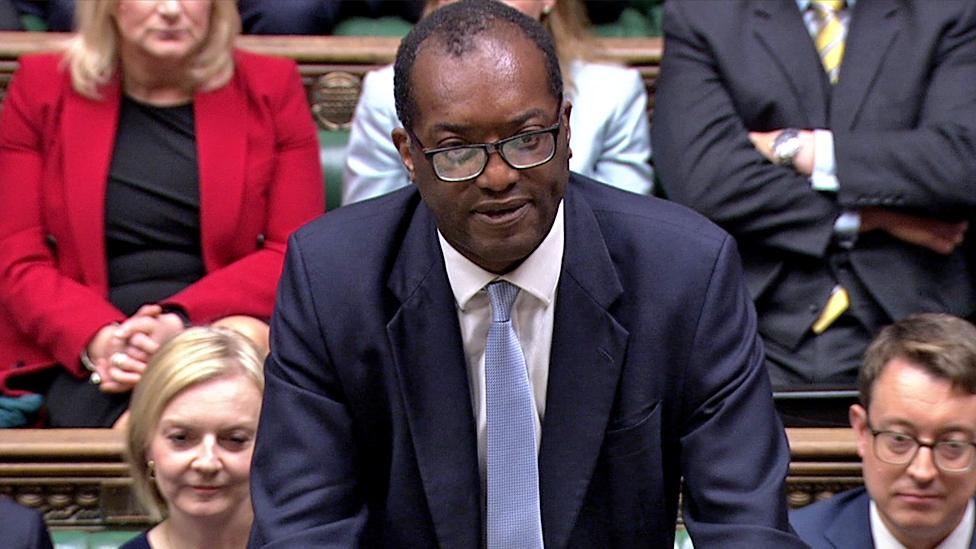
- Published26 August 2022

- Published23 September 2022
